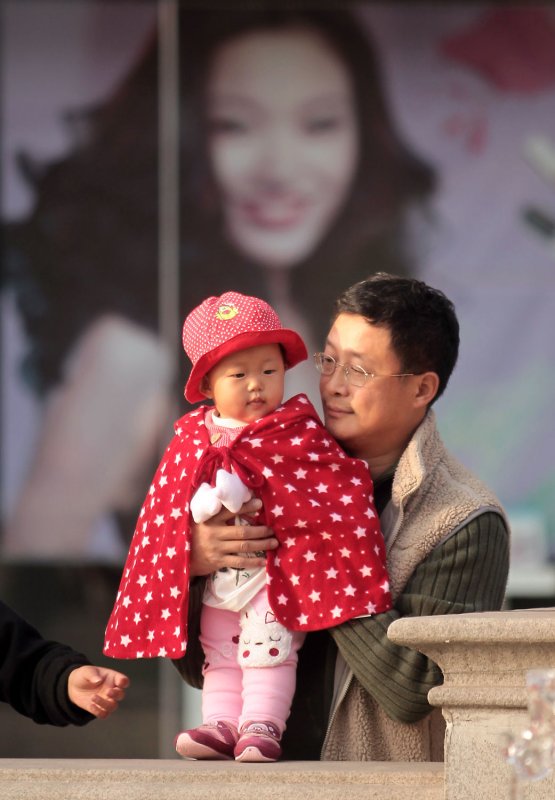1 of 5 | A young Chinese girl looks at a fountain in front of a new, international shopping mall in Beijing on November 5, 2009. China has a traditional preference for male heirs, and to get around the one-child policy, a growing number of families sell their baby girls so they can try again for a boy. UPI/Stephen Shaver |
License Photo
BEIJING, Aug. 5 (UPI) -- China's preference for boys and strict controls on the number of births have combined to create a climate in which children are sometimes seized, observers say.
The practice is especially bad in Longhui County, a poor rural area in Hunan, a southern Chinese province, where at least 16 children were seized by family planning officials between 1999 and late 2006, family members told the The New York Times.
Sometimes the children are never seen by their families again, having been placed for adoption or sold on the black market, some parents say.
"They are pirates," said Yuan Xinquan, whose 52-day-old daughter was allegedly snatched by government officials in 2005. Yuan said he hasn't seen or heard from her since.
China's family planning policies are among the strictest in the world, the report said, although it bans the taking of children from parents who exceed the birth quota. Parents in Longhui said local officials treat babies as a source of revenue, imposing fines of $1,000 or more -- about five times as much as the average family makes in a year -- for violating family policies.
Parents in Longhui told the Times local government officials would take their babies if they were unable to pay the fine.
The issue has renewed questions about foreign adoptions of Chinese children who might be falsely described as abandoned or orphaned, the report said.
"The larger issue is that the one-child policy is so extreme that it emboldened local officials to act so inhumanely," said Wang Feng, a senior fellow at the Brookings Institution who directs the Brookings-Tsinghua Center for Public Policy in Beijing.















